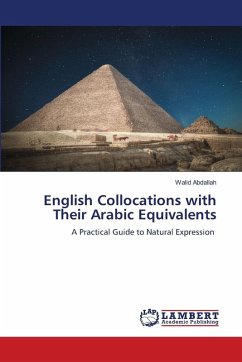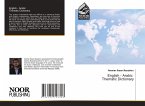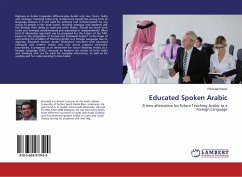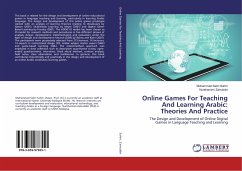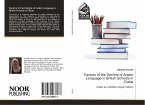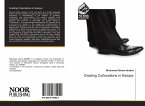This book, English Collocations with Their Arabic Equivalents: A Practical Guide to Natural Expression, is written for learners, teachers, and translators who seek to use English more fluently and naturally. Collocations-the natural word partnerships that native speakers use without thinking-are central to authentic communication. Grammar gives structure and vocabulary provides meaning, but collocations bring rhythm, clarity, and precision to expression. Many learners know the rules, yet still hesitate over simple choices such as "make a mistake" versus "do a mistake," or "take a decision" versus "make a decision." These small details mark the difference between sounding mechanical and sounding natural.In this book, I have gathered the most common and useful collocations in English, arranged by categories and paired with their Arabic equivalents. The bilingual format not only aids understanding but also highlights the deep connections between English and Arabic. It is a practicalguide for study and teaching, and an invitation to see language as a living system of meaningful connections.
Bitte wählen Sie Ihr Anliegen aus.
Rechnungen
Retourenschein anfordern
Bestellstatus
Storno

